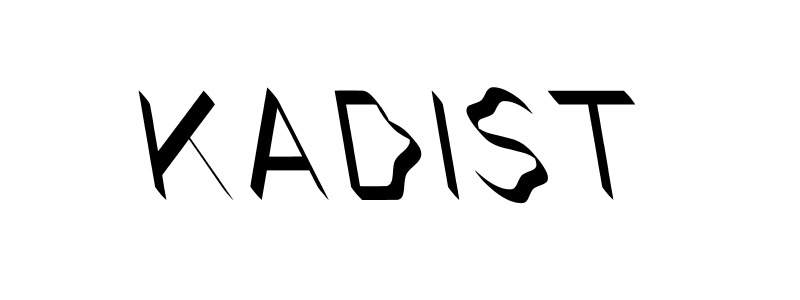Extrastellar Evaluations III: Entropy: 25800
2018 - Film & Video (Film & Video)
16:50 minutes
Yin-Ju Chen
Extrastellar Evaluations is a multimedia installation produced during Yin-Ju Chen’s residency at Kadist San Francisco in the spring of 2016. Chen’s project departs from a 19th century theory popular within Western biogeography that posited the existence of a “lost land” or ancient continent called Lemuria that had sunk beneath the Indian and Pacific Ocean due to cataclysmic geological change. As a result, its inhabitants, the Lemurians, found refuge in Mount Shasta, California. Through a semi-fictional approach, the video component of the installation Extrastellar Evaluations III: Entropy: 25800 envisions a version of history in which the Lemurians lived among humans in the 1960s under the guise of various renowned conceptual and minimal artists (Carl Andre, Mel Bochner, and James Turrell to name a few). The video proposes that humans interpreted and appropriated the geometric-shaped objects the Lemurians created as conceptual and minimalist artworks, when in fact, the objects were transmission devices used to report human actions to their mother planet. Key to understanding the entire installation, the video component takes the form of a channeled message from Adama, High Priest and spiritual leader of the Lemurians. In the video Adama attempts to give viewers clues to decipher the history of the Lemurians, the purpose of their existence on earth, and information about the identities of their agents (artists). The work questions our understanding of our past, while raising consciousness toward our existence on earth. In this context, the installation highlights the risks of human activities, echoing today’s anxieties toward issues of global warming, ongoing conflicts, and exploitation of resources. Addressing earlier signs of humans’ loss of faith in the reality of life, Chen’s work suggests a larger, long-term phenomenon rather than a recent trend linked to the development of media and information technology.
Yin-Ju Chen is a multidisciplinary artist, working in video, photography, drawing, and multi-media installation. She interprets social power and history through cosmological systems, using astrology, sacred geometry, and alchemical symbols to consider themes of human behavior, nationalism, imperialism, racism, state violence, totalitarianism, utopian formations, and collective thinking. Recent works illustrate the inevitability of cycles of history, developing the scope of Chen’s long-term consideration of notions of power and collective (un)consciousness. Chen was in residency at KADIST San Francisco in 2016.
Colors:
Other related works, blended automatically

© » KADIST
Yin-Ju Chen
2011This work includes sketches for Extrastellar Evaluations , the project she produced at Kadist...

© » KADIST
Jason Meadows
2009The Striation Scrap Lamps (vertical and horizontal) although functioning as utilitarian objects also represent Jason Meadows’s interest in a certain kind of crafted sculpture...

© » KADIST
Kristen Morgin
2008Donald of Doom Tank (2008) is a replica of a vintage metal toy with Donald Duck’s image one side and a soldier on the other...

© » KADIST
Cerith Wyn Evans
2008Untitled (Perfect Lovers + 1) by Cerith Wyn Evans takes as its starting point Felix Gonzales-Torres’s seminal work Untitled (Perfect Lovers) , in which two clocks were synchronized and left to run without interference, the implication being that one would stop before the other...

© » KADIST
Mario Garcia Torres
2010In Up All Night, Waiting for the Chelsea Hotel Magic to Spark My Creativity Mario García Torres constructs and documents a hypothetical scene, situating himself within a lineage of artists and creatives that used to congregate at the historic hotel...

© » KADIST
Jason Meadows
2011Titled afterTruman Capote’s protagonist famously played by Audrey Hepburn in the film Breakfast at Tiffany’s (1961), Holly Golightly (2011) captures the essence of the character: seductive and bold, mysterious and capricious...

© » KADIST
Xiaoyun Chen
2006State Terrorism in the ultimate form of Pre-Raphaelite Brotherhood features a portrait of the artist wearing a zipped utilitarian jacket reminiscent of a worker’s uniform, with one arm behind his back as if forced to ingest a bundle of stick—a literal portrayal to the definition of fascism...

© » KADIST
Vincent Leong
2012The photograph Exquisite Eco Living is part of a larger series titled Executive Properties in which he digitally manipulated the images to insert iconic buildings of Kuala Lumpur in the view of derelict spaces also found in the city...

© » KADIST
Yoshua Okón
2009Canned Laughter was Okón’s response to an invitation from Ciudad Juárez , Mexico, where artists were asked to create works based on their experience of the city...

© » KADIST
Trisha Donnelly
2007Untitled is a black-and-white photograph of a wave just before it breaks as seen from the distance of an overlook...

© » KADIST
Joachim Koester
2006Physical and mental exploration have been founding elements in Joachim Koester’s research for several years...

© » KADIST
Doug Aitken
2009The version of Frontier acquired by the Kadist Collection consists of a single-channel video, adapted from the monumental installation and performance that Aitken presented in Rome, by the Tiber River, in 2009...

© » KADIST
Koki Tanaka
2009Walking Through is one of a series of videos—sometimes humorous, often absurd—that record the artist’s performative interactions with objects in a particular site...

© » KADIST
Yee I-Lann
2013Sarcastically titled to call attention to the problematic notions underlying colonialism, this photograph shows hundreds of Native Malaysians seated quietly behind one of their colonial oppressors...

© » KADIST
Dinh Q. Lê
2008Hill of Poisonous Trees (three men) (2008) exemplifies the artist’s signature photo-weaving technique, in which he collects diverse found photographs—portraits of anonymous people, stills from blockbuster films, or journalistic images—cuts them into strips, and weaves them into new composition...





